Freedom of Speech: Does It Include the Right to Say Offensive Things?
VerifiedAdded on 2023/01/05
|7
|944
|62
Essay
AI Summary
This essay, submitted by a student with ID 219373014, addresses the fundamental human right of freedom of speech and its limits, specifically concerning the expression of potentially offensive opinions. The paper begins by establishing freedom of speech as a cornerstone of democratic societies, as recognized by international declarations and national legislations, including Australia's ratification of the UN Declaration. It then delves into the core debate: whether this right extends to expressing views that may cause offense. The essay examines the arguments surrounding the right to be offended, highlighting that while freedom of speech is crucial for constructive dialogue and social reformation, it is not without boundaries. The paper acknowledges that expressing opinions can negatively impact others and lead to the need for regulations. The essay also touches on the misuse of restrictions against freedom of speech for self-interest. In conclusion, the essay argues that while the right to dissent is essential in a democratic society, freedom of speech must be restrained to ensure societal harmony and peace, without violating moral codes or inciting criminal activities. The references include key academic sources and legal documents.
1 out of 7
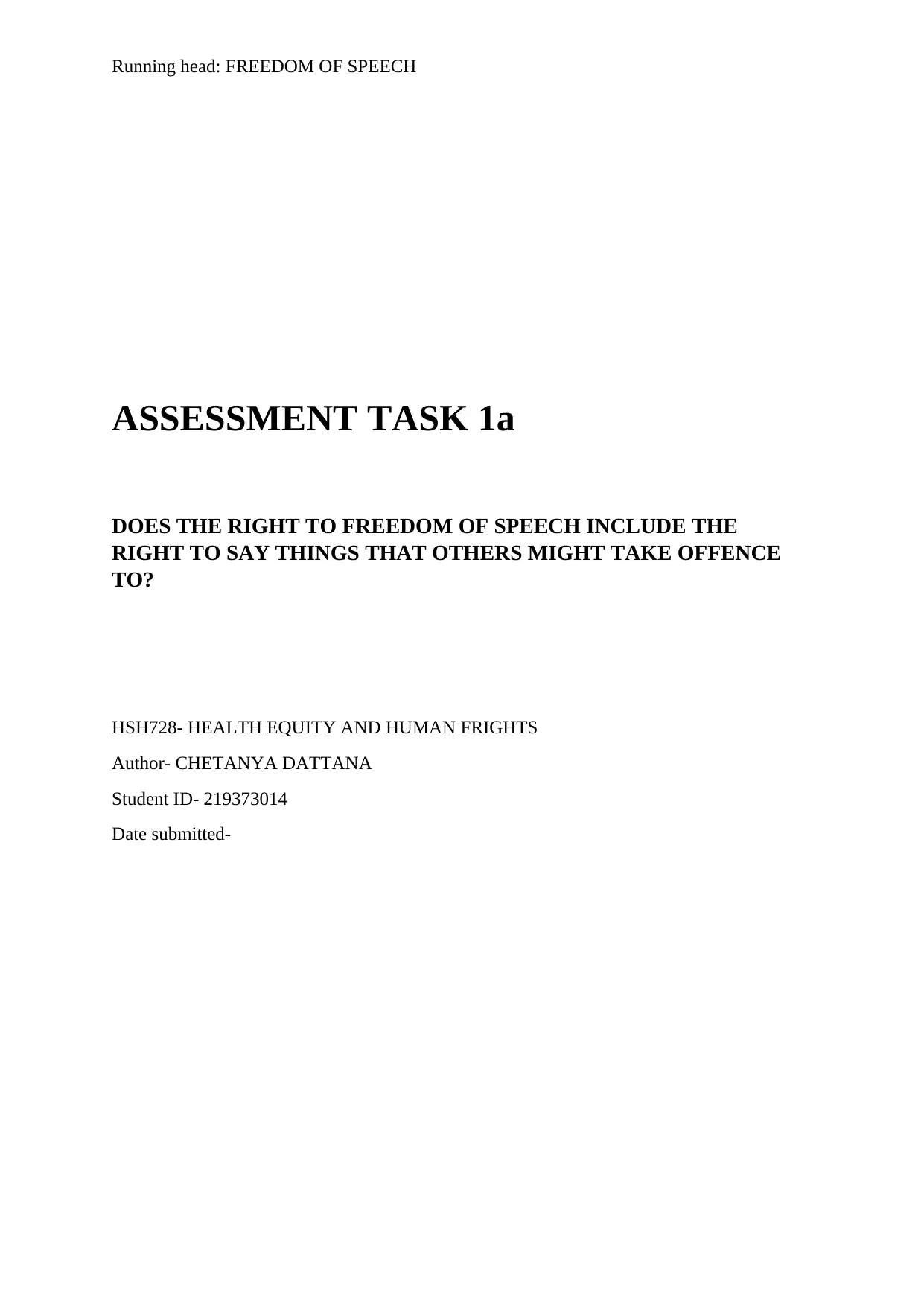
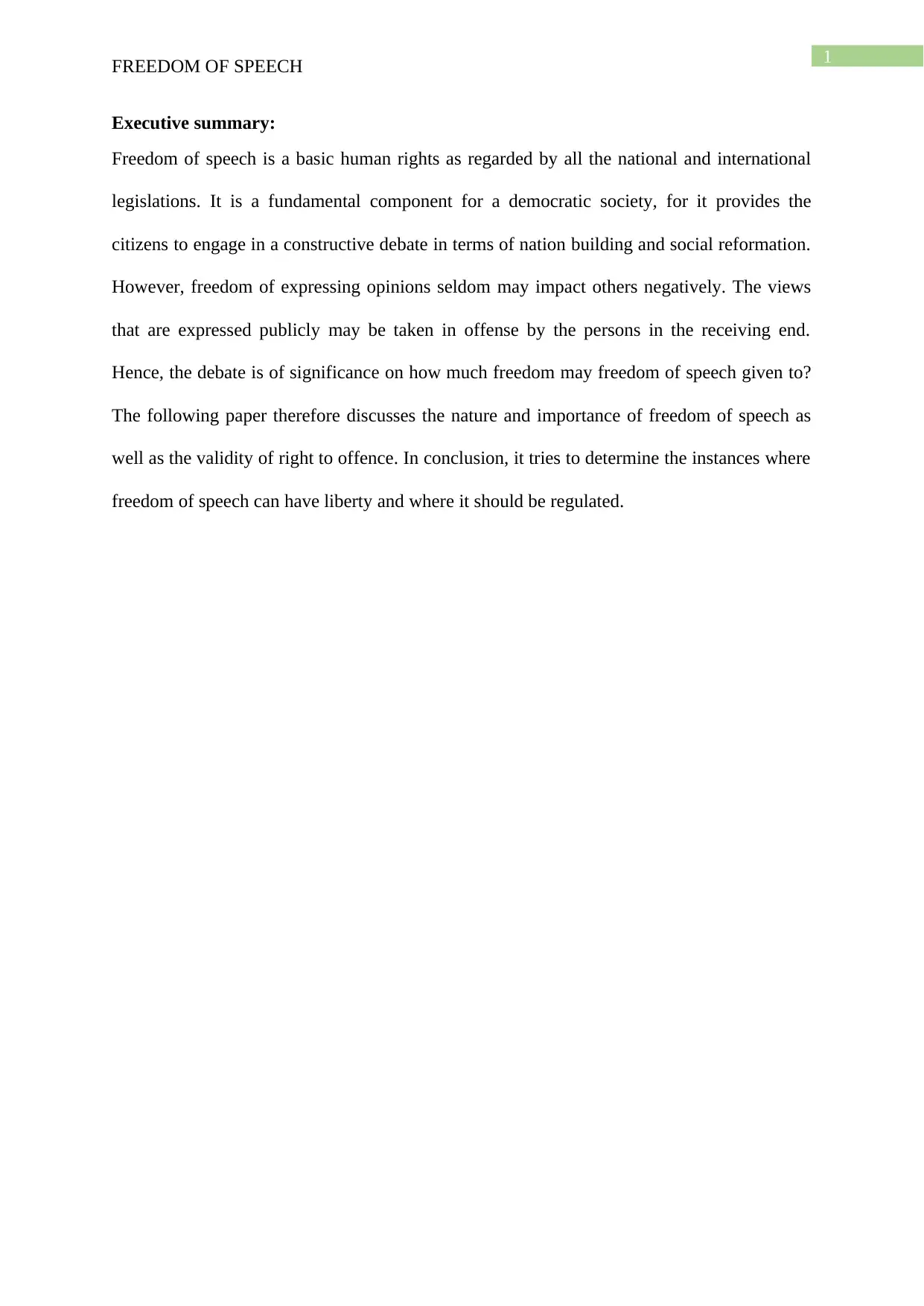


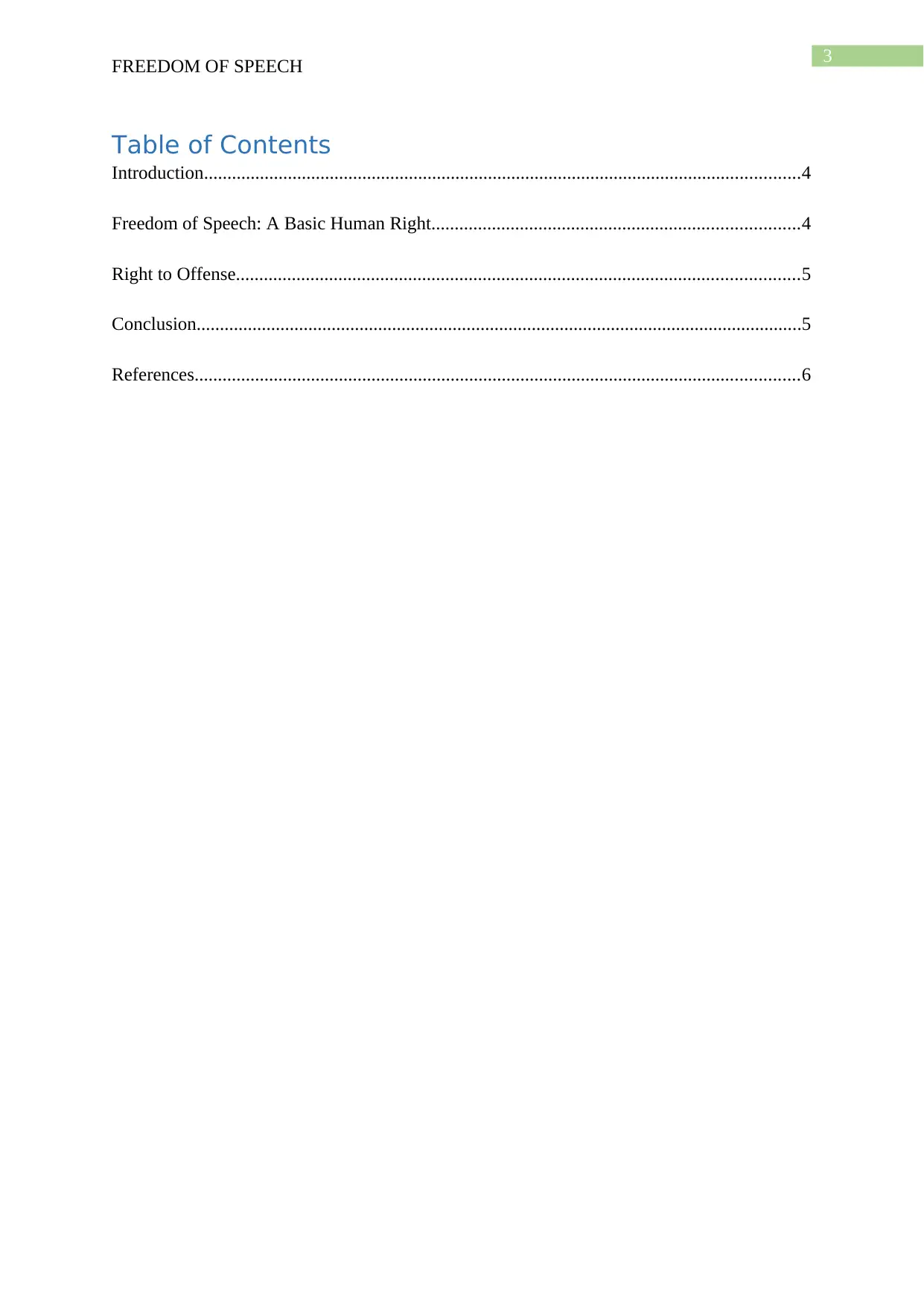
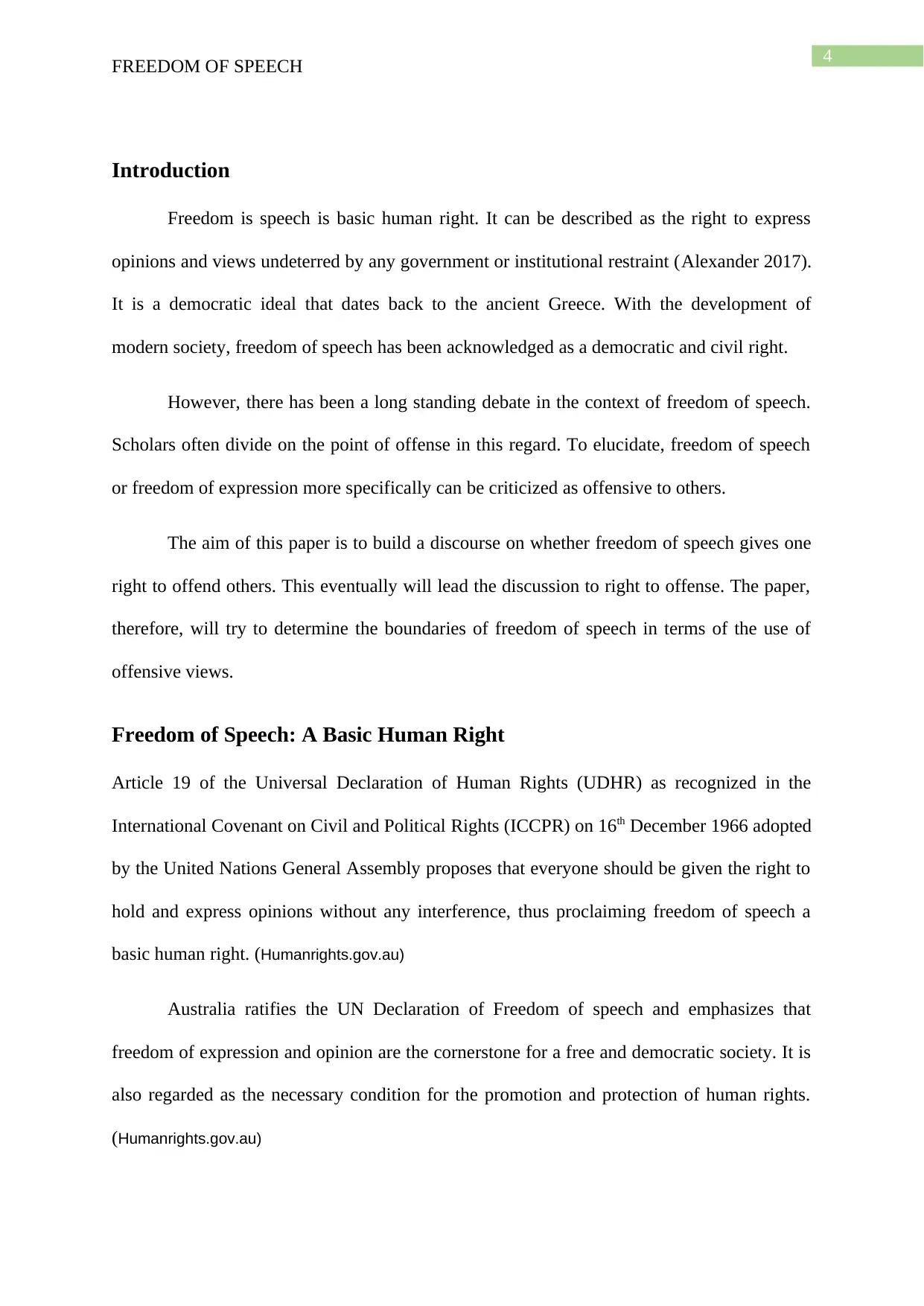
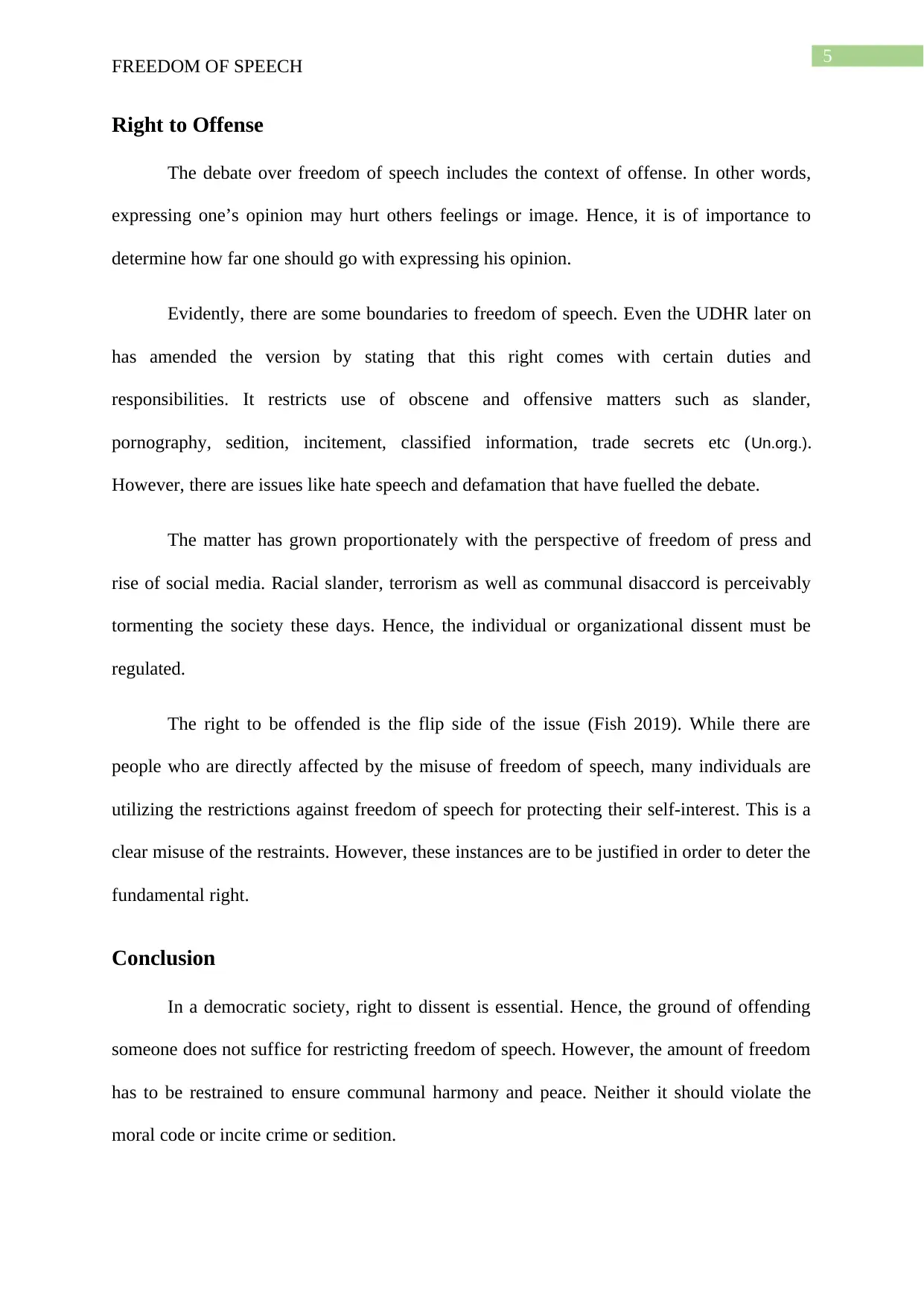
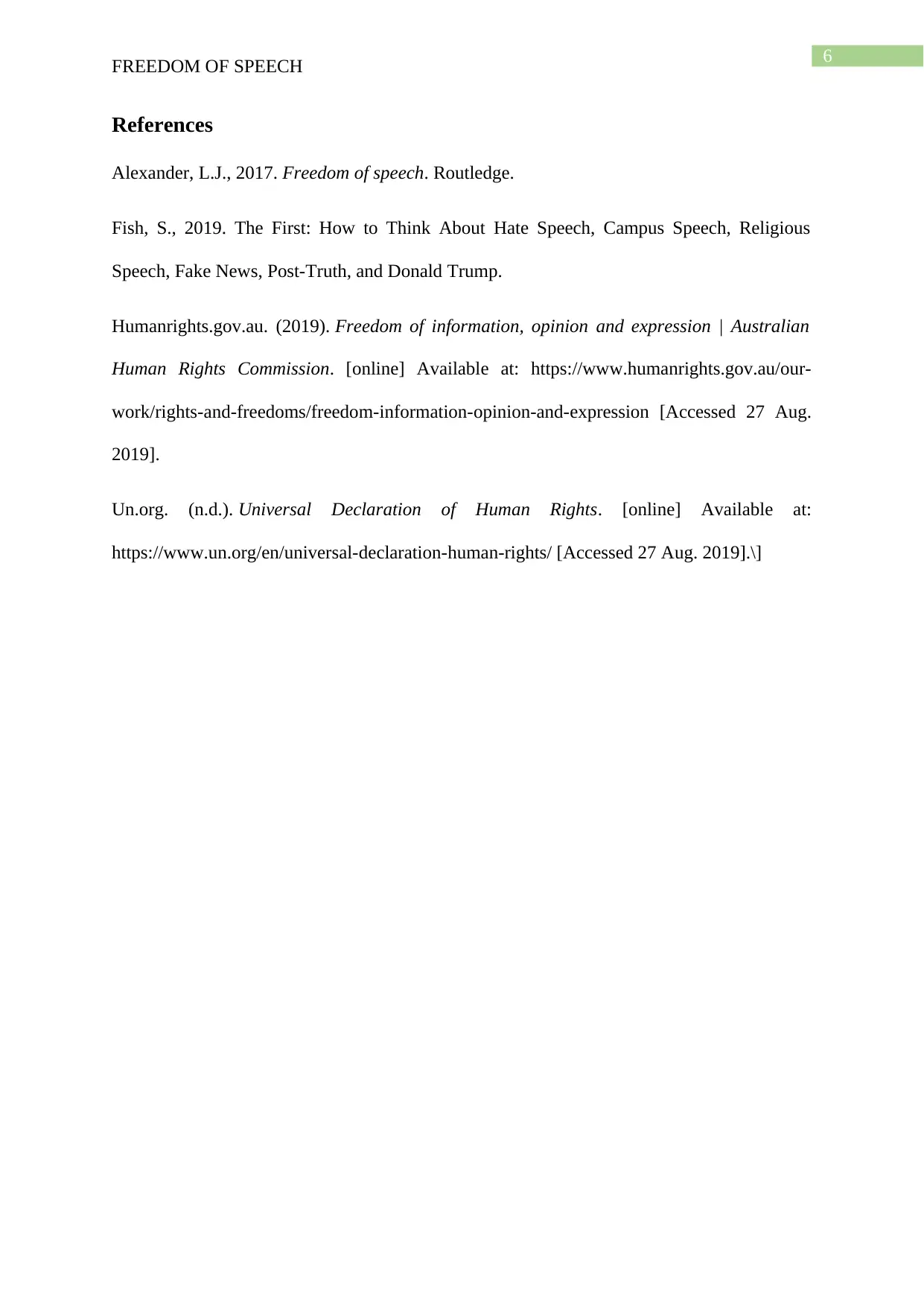






![[object Object]](/_next/static/media/star-bottom.7253800d.svg)